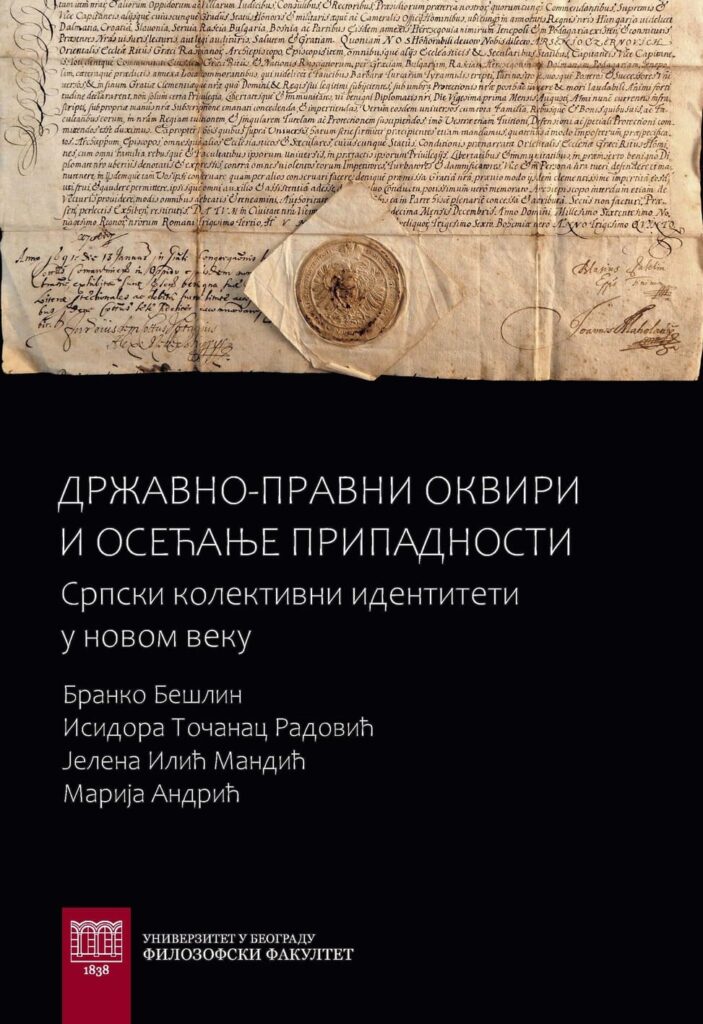B. Bešlin – I. Točanac Radović – J. Ilić Mandić – M. Andrić, Državno-pravni okviri i osećanje pripadnosti: Srpski kolektivni identiteti u novom veku [State-Legal Frameworks and the Feeling of Belonging: Serbian Collective Identities in the Modern Age], Beograd 2024.
Since the Serbian ethnic space belonged for several centuries to the frameworks of the Ottoman Empire, the Habsburg Monarchy, and the Venetian Republic, there were systemic differences in how various communities were treated within each of these states based on religious, linguistic, administrative, or professional affiliations. National identity has remained, to this day, more or less intertwined with other forms of collective identity, a phenomenon that was even more pronounced in the “pre-national” era, from the 16th to the 19th century. Given the lack of strong foundations in previous scholarly findings, the authors decided to follow the most methodologically appropriate approach: namely, to focus on primary sources of diverse provenance and analyze them from the perspective of the topic under investigation. The authors aimed to carefully examine the terms used to denote collective identities in specific historical periods and within contemporary discourse, avoiding interpretations influenced by later or even modern meanings.




